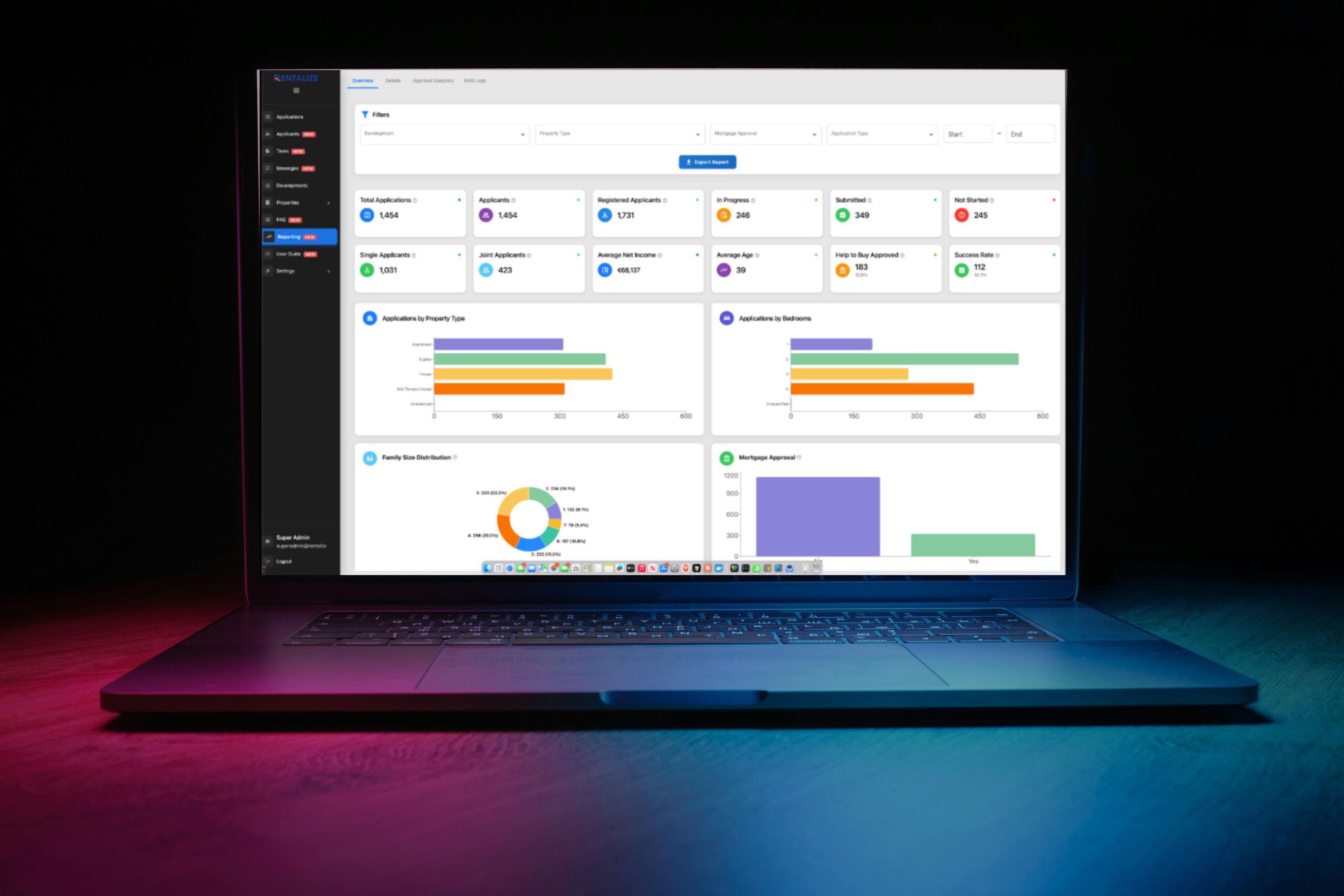The Key to Dependable Property Management
In today’s rapidly evolving landscape, artificial intelligence (AI) is seen as the cornerstone of innovation across industries, especially in property management. However, while AI promises to automate workflows, streamline tasks, and offer predictive analytics, these benefits can only be fully realized when built upon a robust foundation—a rebooted SaaS platform capable of handling accurate and dependable data.
This fundamental challenge of creating dependable and accurate data is the hardest part of incorporating AI into property management, and it’s a step that must be mastered before property providers can think about next steps, such as automation or predictive analysis.
Why Data is the Lifeblood of AI
For AI to function effectively, it requires high-quality data. In the context of property management, this means data related to tenant behavior, rent collections, maintenance history, occupancy trends, and more. AI models rely on this data to make predictions, automate processes, and generate actionable insights.
However, if the data feeding these systems is inaccurate, incomplete, or siloed across multiple platforms, the AI becomes unreliable. Faulty data can lead to incorrect recommendations, which can cause property managers to make costly mistakes—such as setting incorrect rent prices or failing to predict major maintenance needs.
This is where a rebooted SaaS application plays a crucial role. Traditional, outdated systems often struggle to:
- Integrate data sources efficiently.
- Clean and standardize data across different platforms.
- Handle the scale and complexity of modern property management operations.
By rebooting the SaaS platform—making it more agile, connected, and data-driven—property providers ensure that the AI can access the accurate, structured data it needs to operate dependably.
Why Traditional Systems Fall Short
Legacy systems in property management often suffer from data fragmentation. For instance, rent collection might happen through one software, while tenant communication and maintenance tracking are handled by separate tools. This creates data silos, preventing AI from gaining a holistic view of the property operations.
Without a unified, SaaS-based approach, property managers are left with disconnected datasets that undermine the AI’s ability to deliver accurate insights. AI can only be as powerful as the data it’s given—when different parts of the property management process are disconnected, it becomes difficult to see the full picture.
A modernized SaaS application consolidates all property-related data into one seamless ecosystem, ensuring that every element—from rent payments to tenant communication—is part of the same integrated system. This not only improves data accuracy but also enhances decision-making across the entire property management lifecycle.
The Role of Rebooted SaaS in Data Cleaning and Structuring
Even after unifying data across the system, data quality is still a challenge. AI needs clean, structured data to produce reliable results. Incomplete tenant profiles, inconsistencies in maintenance logs, or duplicated entries can skew the data, leading to poor decision-making.
A rebooted SaaS platform can automatically clean, categorize, and standardize data, ensuring it is:
- Consistent across various property management functions.
- Timely so that decisions are based on up-to-date information.
- Accurate, with validations that prevent errors from creeping into the system.
This process is the hardest part of AI integration because it requires continuous management and oversight. Yet, it is essential: without clean data, AI predictions are meaningless.
The Roadmap to AI-Driven Property Management Starts Here
Once the data is accurate, consistent, and integrated into a reliable SaaS platform, only then can property providers begin to think about advanced AI functionalities like:
- Predictive Maintenance: AI can accurately predict when a building’s HVAC system might fail, but only if it has reliable historical data on previous repairs, energy use, and equipment age.
- Dynamic Pricing Models: AI can recommend optimal rent prices based on market demand, property location, and tenant turnover trends, but it needs trustworthy data to do so.
- Tenant Retention Predictions: AI can help predict which tenants are likely to renew leases based on behavior patterns, but again, this depends on having accurate tenant interaction data.
Rebooting SaaS: The Key to Long-Term Success
AI’s true potential in property management can only be realized after the fundamental challenge of rebooting the SaaS platform and getting the data right is solved. This is a critical phase that involves creating a dependable data infrastructure.
Without a robust SaaS platform capable of collecting, cleaning, and analyzing data in real-time, AI will be ineffective and prone to failure. For property providers to reap the long-term benefits of AI, they must first invest in reliable data management systems that modern SaaS solutions offer.
Conclusion
AI promises to be a transformative tool for the property management industry, but its effectiveness hinges on the quality of the data behind it. Rebooting the underlying SaaS infrastructure is the hardest, yet most essential step. By establishing accurate and integrated data management systems, property providers can unlock the full potential of AI to optimize operations, enhance tenant satisfaction, and drive higher profitability.
Before focusing on AI-driven decision-making, the priority should be cleaning up data and creating a solid SaaS foundation—only then will AI be able to deliver reliable, actionable insights that can propel property management into the future.




